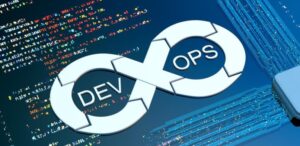Table of Contents
- Introduction
- The Evolving Role of Cloud Engineers
- What is DevOps AWS Training?
- Overview of DevOps Practices
- Why AWS is the Preferred Cloud Platform
- Key Skills Gained from DevOps AWS Training
- Automation & CI/CD Pipelines
- Infrastructure as Code (IaC)
- Containerization & Orchestration
- Cloud Monitoring & Security
- Why Cloud Engineers Need DevOps AWS Training
- Bridging Development & Operations
- Boosting Efficiency & Scalability
- Meeting Industry Demands
- Career Benefits of DevOps AWS Training
- High-Paying Job Roles
- Increased Market Demand
- Global Opportunities
- Real-World Applications of DevOps on AWS
- Case Studies & Success Stories
- How to Get Started with DevOps AWS Training
- Learning Path & Certifications
- Hands-On Projects & Tools
- Conclusion
- Future-Proofing Your Cloud Engineering Career
Introduction:
The career of cloud engineer has become more than a job of server and storage management. The modern world of fast-changing IT requires companies to get their software delivered much faster, with a greater volume of innovations, and without a hitch. This trend has relegated DevOps AWS training as a necessary one to make cloud engineers remain relevant and competitive.
AWS, which is the most popular cloud platform in the entire world, provides such potent services as automation of workflows, application deployment, and infrastructure monitoring at scale. Cloud engineers can work toward reducing the gap between the development and operation by incorporating the DevOps practices in the development environment through the integration of Continuous Integration, Continuous Deployment (CI/CD), Infrastructure as Code (IaC), and container orchestration.
Using DevOps AWS competencies, engineers will be able to keep the systems secure and dependable and have faster application deployment with reduced downtimes. In addition, organizations are actively looking for specialists that will be able to integrate AWS skills with DevOps technologies such as Jenkins, Docker, Kubernetes, and Terraform.
Finally, This Training can enable cloud engineers to move past the status quo of their conservative jobs to become strategic innovators and can enable businesses to use their efficiency, speed, and consistent growth in a cloud-first environment.
What is DevOps AWS Training?
DevOps AWS Training is a highly trained program that enables IT professionals and cloud engineers to acquire the skills in how to integrate DevOps on Amazon Web Services (AWS). It emphasizes automation, continuous integration, continuous delivery (CI/CD), infrastructure as code (IaC), and monitoring solutions. With this training, learners are further equipped with firsthand experience of how deployment, management, and scaling of applications can be carried out efficiently in the cloud.
Overview of DevOps Practices
DevOps is a set of beliefs and practices that convert the distance between IT operations and software development. It focuses on teamwork, automation, and constant improvement. The most important practices are
Continuous Integration (CI): Frequently updating / committing updates to a common repository.
Continuous Deployment (CD): Automation of application release.
Infrastructure as Code (IaC): The Configuration script-driven control of infrastructure.
Monitoring & Feedback: Guarantee of performance, security, and scalability.
Through DevOps, organizations lower the downtime, improve the delivery speed, and enhance product quality.
Why AWS is the Preferred Cloud Platform
AWS is the leading global cloud platform that provides unparalleled scalability, flexibility, and reliability. It gives a very strong set of services, including AWS Code Pipeline, Elastic Beanstalk, CloudFormation, and EC2, that can readily support DevOps practices. AWS provides worldwide infrastructure, pay-as-you-go pricing, and enterprise-level security features to companies so that they can innovate faster and lower the costs.
The advantages of a DevOps training on AWS extend beyond technical knowledge and skill to access career opportunities that are already in demand across industries by companies and their aspiring cloud engineers.
Key Skills Gained from DevOps AWS Training
This training is beyond the learning of concepts in the clod it also arms the professional with practical skills that can revolutionize application building, deployment, and management. The integration of the DevOps methodologies and the strength of Amazon Web Services give learners a competitive advantage over their peers in the current dynamic IT environment.
These are the essential skills that can be trained in this training:
Automation & CI/CD Pipelines
AWS Training DevOps- One of the best DevOps skills is knowing how to exploit automation with Continuous Integration (CI) and Continuous Deployment (CD). Engineers are taught how to employ such tools as AWS Code Pipeline, Jenkins, and GitHub Actions to simplify workflows. This allows quicker releases of the code, minimal errors, and regular releases of the applications.
Infrastructure as Code (IaC)
It is tedious and cumbersome to manually manage infrastructure. Professionals are also apt at the technique of Infrastructure as Code through AWS services such as CloudFormation and Terraform. This enables an engineer to create, update, and manage resources in scripts and is scalable, repeatable, and reliable.
Containerization & Orchestration
The modern applications require portability and scaling. DevOps AWS Training includes the concepts of containerization (Docker) and orchestration (Kubernetes (EKS)). As engineers we are taught to utilize microservices effectively with high availability and adaptability within an environment.
Cloud Monitoring & Security
In the cloud we require performance and security. Hands-on experience in tools like Amazon CloudWatch, AWS Config, and Guard Duty. These services help in checking performances, finding deficiencies, and running detection according to the industry standards.
Why Cloud Engineers Need DevOps AWS Training: This responsibility of cloud engineers is quickly changing as organizations are seeking faster, more trustworthy, and scalable solutions. It is no longer sufficient anymore to traditionally manage infrastructure; engineers need to introduce DevOps practices and use AWS to stay competitive and provide more value.
Bridging Development & Operations
DevOps AWS Training prepares cloud engineers to bridge the communication gap between the developers and the operations departments. They learn to use CI/CD pipelines and automation with Infrastructure as Code, which prevents collaboration friction and speeds up the delivery of software. This minimizes faults, cuts release time, and causes a nimbler environment.
Boosting Efficiency & Scalability
Tooling like AWS CloudFormation, Amazon Elastic Beanstalk, and Amazon Auto Scaling allows cloud engineers to automate repetitive processes, make their infrastructure more efficient, and scale applications on demand. This efficiency can be interpreted as less downtime, greater reliability, and very high cost savings for the businesses.
Meeting Industry Demands
Organizations across the globe are moving to DevOps on AWS to realize speed innovation. A DevOps AWS cloud engineer is a highly sought-after person who can often get a higher wage and be placed in management positions. It keeps them up-to-date with training and what the industry expects.
Career Benefits of DevOps AWS Training:
The market of cloud professionals is booming, and DevOps AWS training presents valuable career benefits to the engineers who want to remain competitive in this industry. When DevOps practices team up with the opportunity to deploy applications on the most popular cloud system worldwide, AWS, professionals get a chance to develop their careers in marketing much more than they would have done.
High-Paying Job Roles
Companies are spending a lot on the development of DevOps and cloud solutions, and professionals who are certified will be of great value. More specific roles like DevOps Engineers, Cloud Architects, Site Reliability Engineers, and AWS Solutions Architects can all have high salaries given the specialized knowledge they have to operate automation and scale.
Increased Market Demand
AWS DevOps is finding use in businesses of all types and sizes to improve processes, decrease expenses, and deliver quickly. This places a premium on talent in the cloud engineering industry with the ability to design, deploy, and manage the modern infrastructure.
Global Opportunities
It ensures that trained professionals will have the opportunity to work in any country around the world, a key essential approach. The combination also in both multinational companies and startups.
DevOps AWS Training does not only advance technical skills but also helps professionals get a better chance of long-term career development, international mobility, and financial prosperity.
Real-World Applications
AWS has changed how businesses innovate, scale, and deliver faster with DevOps. A large number of organizations have integrated AWS DevOps practice as a solution towards organizational streamlining and efficiency. As an example, Netflix uses AWS to push thousands of changes to production each day to keep millions of people across the globe streaming. Airbnb deploys infrastructure through AWS DevOps services such as Code Deploy and CloudFormation to achieve automation and speed up releases of new features.
In the same vein, Samsung runs AWS pipelines to handle intensive loads and comply and maintain security. Such real-life success stories portray how AWS supports enterprises through automation, scalability, and resilience. With the adoption of DevOps on AWS, businesses attain quicker market intake, shortened downtimes, and improved customer experiences in all types of businesses.

How to Get Started with DevOps AWS Training
The task of starting training in DevOps AWS should be done in a highly organized way that needs to combine theory and practice. The initial step presupposes establishing a good basis in cloud computing fundamental knowledge, Linux, and scripting languages such as Python or Shell. Next, the learners will be expected to immerse themselves in AWS core services like EC2, S3, IAM, and VPC, and these are crucial to deploy and manage the applications in the cloud.
The learning path should contain an adequate combination of learning AWS DevOps tools, such as Code Pipeline, Code Deploy, CloudFormation, and Elastic Beanstalk, as well as learning containerization technology, such as Docker and Kubernetes. In order to authenticate skills, certifications such as AWS Certified DevOps Engineer and Professional or AWS Certified Solutions Architect may offer high-proficiency possibilities in a career.
Practical experience is essential, and hands-on experience is intensive with real-time jobs involving automated CI/CD chains, infrastructure as code (IaC), and monitoring using CloudWatch, which will enhance practical understanding.
IntelliQ IT Presents Advanced DevOps AWS Training: We have designed our training in a very broad and live format where we have covered all aspects of training and given live projects with expert mentorship, which includes 100 percent certification guidance. IntelliQ IT uses a mix of structured learning, practical labs, and industry case studies to make sure that the learner develops the skills to become the professional DevOps practitioner capable of addressing global industry needs.
Conclusion:
In the digital era now, cloud engineering and DevOps are not an option anymore; they are a necessity to support innovation and efficiency. Once having learned DevOps on AWS, professionals will be able to acquire the highly requested occupation, get involved in any project with international scope, and remain at the top in a changing technology environment. Lifelong learning and practicing experimentation with automation, cloud-native, and CI/CD pipelines guarantee that you will continue developing your career.
IntelliQ IT Training provides the industry-specific skills, portfolio-based project work, and mentorship to develop a future-ready career. An investment into DevOps AWS training today can plant you into sustainable success in the cloud-centric world tomorrow.






